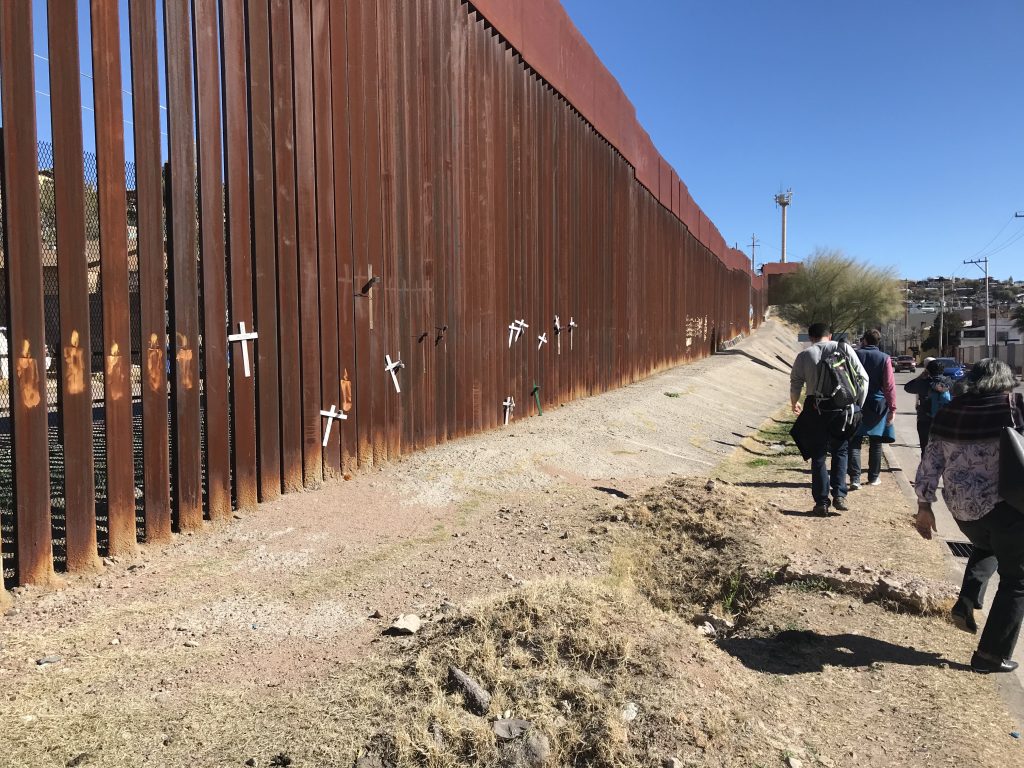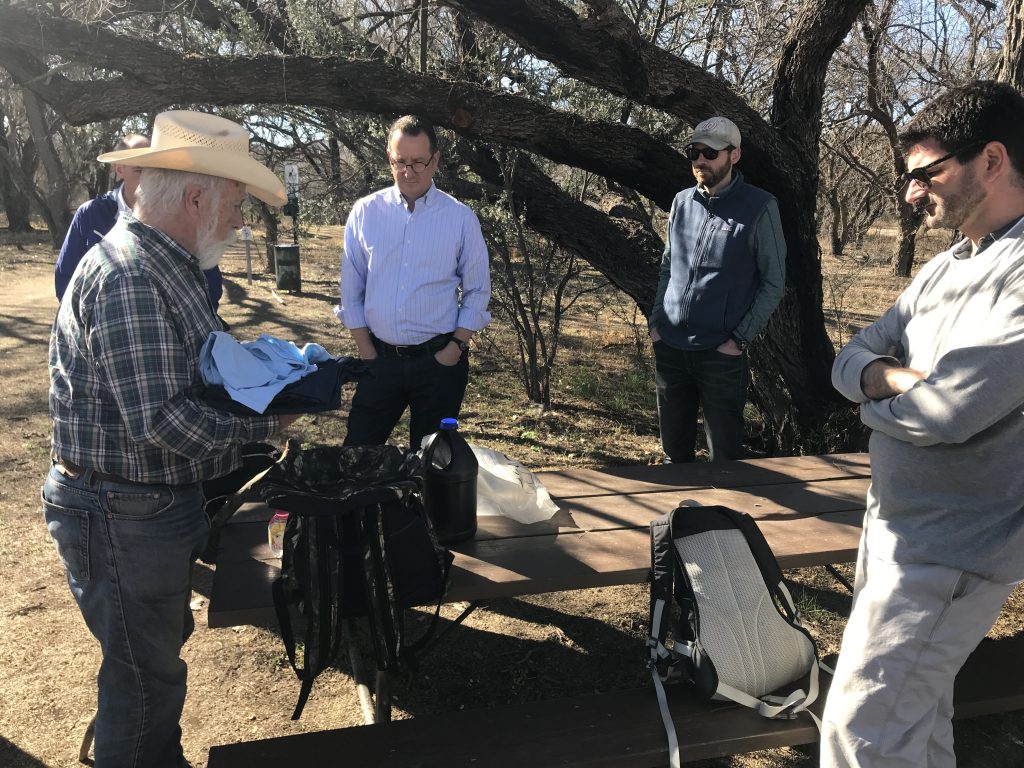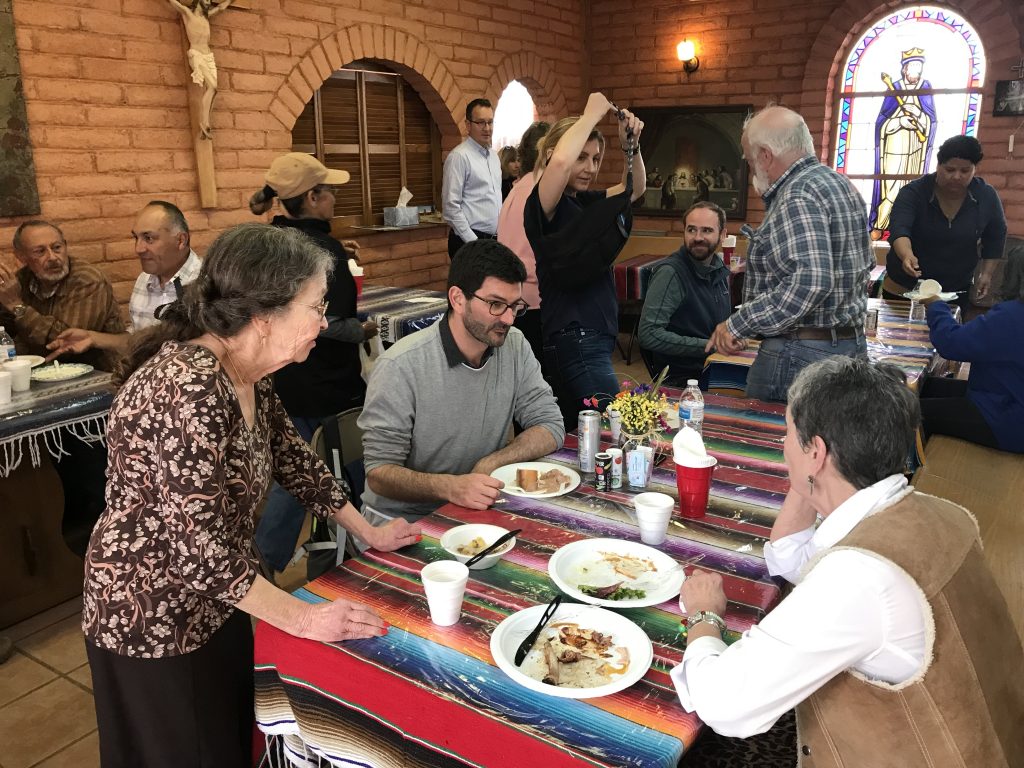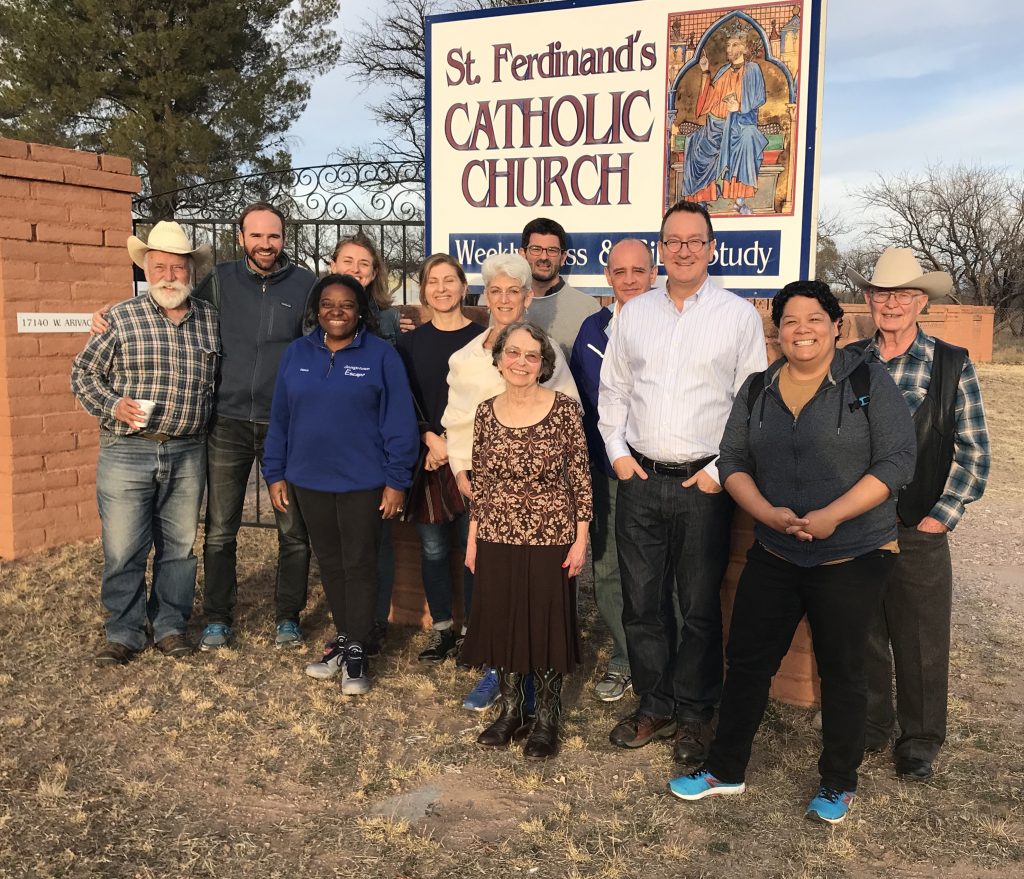Last week’s post was dedicated to spiritual and self-development resources, namely an examen meditation inspired by the Jesuit tradition, that one might try out during the summer months when life and work tend to be slower for many people. But summer is actually a very busy season for others, including the dedicated team of staff and faculty that run Georgetown SCS’s Summer Sessions and Summer High School programs. Mission in Motion sat down with Caitlin Cochran, who oversees the SCS summer team, to discuss the mission commitment of the summer programs, the opportunities and challenges of this work, and personal reflections on her time at the University. An alumna of Georgetown College with years of service at the University, Caitlin is also nearing the completion of a doctoral program in education focused on leadership and learning in organizations.
1. You’ve been a member of the Georgetown community for some time, beginning as an undergraduate student and now years later serving as the SCS Associate Dean for Summer and Special Programs. Can you share some reflections about your Georgetown experience and what stands out to you during your journey at the University?
It has been a long journey, and so many things stand out. GU is just a really special place, and so is SCS. I actually chose Georgetown for college because I wanted to get far away from my hometown, but I struggled to fit in and find a place. The term “imposter syndrome” was not really used much then, but I definitely felt like I didn’t belong. I worked 30+ hours a week, actually for SCS, but it was called SSCE then (School for Summer and Continuing Education), plus I was a student-athlete and had to be enrolled full-time every semester. So I didn’t have a lot of free time to make friends or try things out like other students, and I really let that get to me. But one of the best things about Georgetown is that while you are here, you meet people who change you for the better.
I’ve been here a long time, so that list of people is pretty long for me and includes faculty, coaches, teammates, co-workers, and, of course, my former deans. I actually don’t think I would have finished my degree here if it wasn’t for my advising deans in the College. I remember talking to Dean Cloke after class one day because I wanted to take a leave of absence my junior year. I was tired, anxious, depressed, burnt out, and for some inexplicable reason I registered for Mathematical Modeling which basically sealed the deal on my self-doubt and made me wonder why I was even here. After reassuring me that I did not need to be a mathematician, Dean Cloke said to me, “It doesn’t matter how you got here. What matters is what you do with the opportunity you have.” I don’t know why that made all the difference, but it did. Maybe it’s because I needed the reassurance that indeed I was not a unique failure in the system and I was not the first (or last) student to struggle. When I think back on that conversation, I can still feel a sense of relief and freedom at a renewed understanding of the word “opportunity.”
My education here was never anything I took for granted, yet I almost gave it up in a blur of stress and loneliness. What has driven me since then is finding ways to provide opportunities for others and making it easier and more accessible for students, especially those doing it all on their own. In a lot of ways, I have come full circle and I can only hope that I have a similar impact along the way that my deans had on me.
2. SCS runs many programs in the summer. Can you tell us more about these many different programs and how they all fit together as a unified whole?
The summer team offers something for everyone. Literally, a learner at almost any stage can find something with us. On our non-credit and pre-college side, we design our offerings around career development theory which explains the different stages one experiences as they explore, test, and ultimately develop an affinity and identity within a certain field. High school-age students are in the career exploration stage, which focuses on information seeking, self-cognition, and testing the environment. So we provide opportunities for about 2,000 students every summer to experiment with different areas of study in a variety of ways so they can start to determine if the area and the environment match with their interests and abilities. A big part of this is reflection and understanding one’s beliefs, values, and passions, so incorporating Jesuit tools like the examen or simple reflection is built into a lot of our programs.
The high school students can also take our credit courses. We typically see students who are further along in their career exploration participate in these courses, and many of them are testing the waters here at Georgetown to see if this is the right fit for them. Anecdotally, I have come across quite a few GU undergrads who participated in one of our programs while they were in high school, so that must be a good sign!
In addition to the almost 200 high school students who enroll in our credit courses, we also serve over 1,000 GU undergraduates plus close to 200 visiting students from around the world in our Summer Sessions. Students range in age and stage in these courses. By that I mean, some students are still exploring career options while others are actually exploring career changes. We have some students who are coming back to college to take courses required for a graduate or professional program or to reskill in preparation for a new job. And for our international students, our summer session courses are a way for them to experience higher education while being exposed to American culture.
3. Your service at Georgetown has been distinguished by your commitment to the University’s mission and values. For example, you serve on the leadership group of the SCS Diversity, Equity, Belonging, and Inclusion Council (DEBIC). In what ways do you think the summer programs that you oversee uniquely animate Georgetown’s mission?
One of the things I love about my job is that I get some freedom that a lot of people in similar positions in higher education don’t get–freedom to try things that aren’t always about enrollments or revenue. Education accessibility, affordability, and opportunity are truly important to me and need to be a part of my work, and I am so lucky to have a team of people who are just as passionate about these issues as I am. Despite long days and heavy workloads, I have never had a teammate shy away from helping with a mission-driven program.
Our Summer College Immersion Program is the one that always comes to mind because it is long-standing and has proven to be effective. In the 12 years the program has been running, close to 85 percent of SCIP alumni graduate college in four years, which is over 30 percent higher than the national average. We’ve even seen close to 100 SCIP alumni graduate from Georgetown.
New this year, we are partnering with SFS to offer a program for HBCU students interested in exploring security studies as a career option. We have the chance to administratively support this program and be “behind the scenes” which is a new perspective for us but one we are happy to take on so we can be a part of these students’ journeys and embody our values.
4. As a higher education professional and scholar-practitioner studying and writing about leadership in organizations, do you have any final reflections to share?
We’ve all heard it already, but higher education is truly at a critical moment right now, in so many ways. There has always been a tension between the desire to change and evolve and the need to remain stable and true to traditions, but we see the unintended consequences of resisting change. From very real decreases in enrollments and students questioning the value of a degree to students demanding change because the systems and processes were not designed for them–these are all consequences of maintaining the status quo of certain normative systems, structures, and cultures. And these systems, structures, and cultures are at the very heart of the student experience. Faculty and administrators have a role to play in creating this environment. As it is now, there are pockets of individuals or departments who are ready, willing, and able to embrace change; however, leaders at all levels need to embrace change if we want to course correct and change people’s minds and hearts about higher education. And some of that change may seem radical and scary. Things like rethinking degree requirements, faculty tenure, and how to truly support a diverse student body could have a meaningful, positive, and lasting impact.
I would be remiss if I did not emphasize the importance of university staff in all of this. So often the focus and attention and accolades go to faculty, but staff play a critical role, too. I worry about the state of higher education when staff everywhere are burned out, under-resourced, and overwhelmed. We are all human and have a finite capacity to withstand certain conditions, and when we are near our capacity so consistently, things break down. Interpersonal relationships and communication suffers. Processes break down. People break down. Cultures break down. In our ecosystem, when staff break down, faculty break down and then students break down. It behooves us to take care of one another and for leadership to look after and value its staff as much as they value faculty and students.




